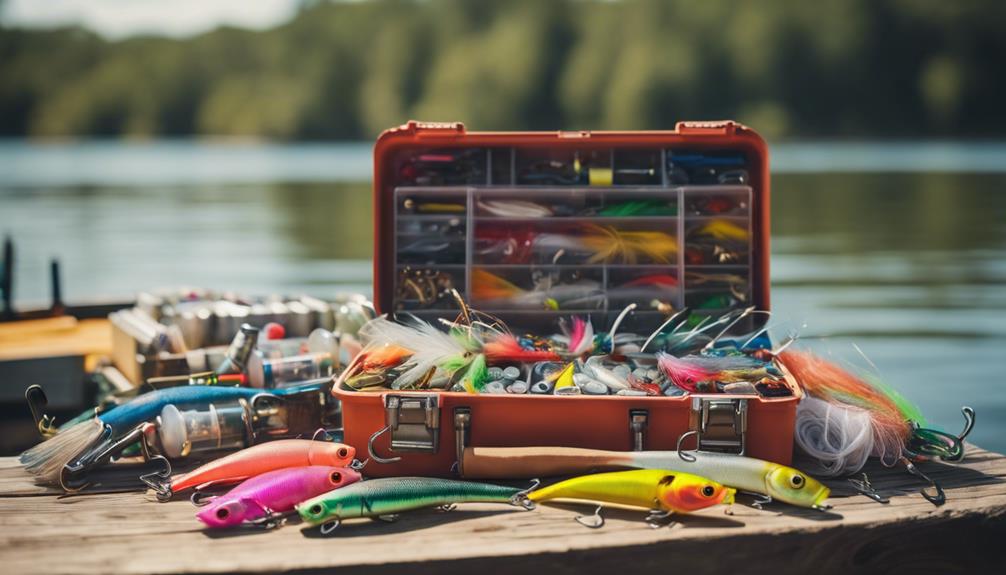Fishing is more than just a hobby; it’s a way of connecting with nature, relaxing, and sometimes even providing food for families. However, many new anglers often wonder, “Why do I need a fishing license?” This article aims to address that question in detail, exploring the significance of fishing licenses, the benefits of obtaining one, and the implications of fishing without one.
The Legal Requirement of Fishing Licenses
In most regions, including the United States and various countries around the world, a fishing license is a legal requirement for anyone who wishes to fish in public waters. This regulation is in place to manage fish populations and protect aquatic ecosystems. When you purchase a fishing license, you are contributing to the conservation efforts that help maintain the balance of marine life. This legal framework also serves to prevent overfishing, ensuring that future generations can enjoy the same outdoor experiences. Thus, understanding why you need a fishing license goes beyond mere compliance; it’s about supporting sustainable fishing practices.
Conservation Efforts Funded by Fishing Licenses
One of the most compelling reasons why you need a fishing license is the funding it provides for conservation initiatives. The revenue generated from fishing licenses is often allocated to various programs aimed at preserving fish habitats, conducting research, and improving fishing access. These funds help state and local governments manage natural resources effectively. The more individuals who obtain licenses, the more money is available for these important projects. By purchasing a fishing license, you become part of a larger community dedicated to protecting aquatic ecosystems.
Understanding Fishing Regulations and Their Benefits
Fishing licenses come with associated regulations that are designed to protect both anglers and aquatic life. These regulations may include limits on the number and size of fish that can be caught, specific seasons for fishing certain species, and designated areas where fishing is allowed. Understanding these regulations is crucial for responsible fishing. They not only help in conserving fish populations but also promote fair competition among fishermen. When you ask, “Why do I need a fishing license?” consider that it enables you to fish responsibly within a framework that promotes sustainability and fairness.
Promoting Safe Fishing Practices
Another vital aspect of why you need a fishing license is that it promotes safe fishing practices. Many licensing agencies provide educational resources and training that can help both novice and experienced anglers understand the best practices for fishing. This may include information on how to handle fish properly, the importance of catch-and-release practices, and how to navigate local waters safely. These resources help ensure that fishing remains a safe and enjoyable activity for everyone involved.
The Role of Fishing Licenses in Community Engagement
Fishing licenses also play a significant role in fostering community engagement. Many states and regions host fishing events, competitions, and educational programs aimed at promoting fishing culture. By obtaining a fishing license, you gain access to these community-building activities, making it easier to meet other fishing enthusiasts. These events often emphasize the importance of conservation and responsible fishing, creating a sense of camaraderie among participants. So, when you consider why you need a fishing license, remember that it opens the door to engaging experiences that enrich your fishing journey.
The Consequences of Fishing Without a License
Fishing without a license can lead to serious legal consequences, including fines and penalties. Each region has its own laws regarding fishing without a permit, and the repercussions can vary significantly. In some cases, you may be issued a warning, while in others, you could face hefty fines or even criminal charges. More than just a financial burden, these consequences can also tarnish your reputation as an angler. Thus, understanding why you need a fishing license is not just about legality; it’s also about preserving your integrity in the fishing community.
How to Obtain a Fishing License
Obtaining a fishing license is generally a straightforward process. Most states offer online applications through their wildlife or fishery departments, making it easy to apply from the comfort of your home. You will typically need to provide some basic information, including your name, address, and date of birth. Additionally, there may be a small fee associated with the license, which varies depending on the type (residential, non-residential, short-term) and duration (annual, multi-year, etc.). Understanding how to obtain a fishing license is crucial for anyone serious about pursuing this recreational activity.
Conclusion: The Bigger Picture of Fishing Licenses
In conclusion, the question, “Why do I need a fishing license?” is multi-faceted. From legal requirements and funding for conservation efforts to promoting safe fishing practices and community engagement, fishing licenses play a crucial role in sustaining our aquatic ecosystems and ensuring a positive fishing experience for everyone. By obtaining a fishing license, you not only comply with the law but also contribute to the greater good of preserving our natural resources. So, next time you gear up for a fishing trip, remember the importance of your license and the impact it has on both your enjoyment and the environment.
—
This comprehensive overview should provide you with a clear understanding of why a fishing license is not just a piece of paper but a vital tool in promoting sustainable fishing practices and protecting our natural resources. Whether you’re a seasoned angler or just starting, understanding the importance of a fishing license is essential for responsible fishing.
